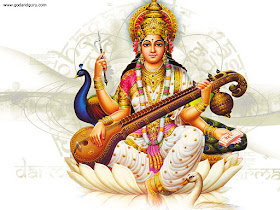Happy New Year 2012!
New is always good! A new year, new resolutions, new opportunities to pursue old resolutions...
New is always good, be it new clothes on Diwali or Christmas, a new toy or gadget. That is why companies keep releasing new versions of their products like a slow release medicine capsule. Be it the "Pod", or cars, or phones, computers and operating systems. The human need to have something new, the charm of new, is always there.
But somethings are better old, or older. Like a faithful old dog. Or old photographs, bringing alive old memories. Old friends!
Here is a shloka from NitiPradeep (nIti-pradIpa / nīti-pradīpa / नीतिप्रदीप) giving a very practical advice about what is better off as new and what as old.
New dress (cloth), new umbrella, newly turned woman, new house;
everywhere new is praised, [but] servant and grain are [recommended] old[er].
नवं वस्त्रं, नवं छत्रं, नव्या स्त्री, नूतनं गृहम् ।
सर्वत्र नूतनं शस्तं, सेवकान्ने पुरातने ॥
navam vastram, navam chhatram, navyA strI, nUtanam gRiham |
sarvatra nUtanam shastam, sevakAnne purAtane || (ITRANS)
navam vastram, navam chhatram, navyā strī, nūtanam gṛiham |
sarvatra nūtanam shastam, sévakānné purātané || (IAST)
New cloths, either new in construction or new in fashion are always exciting, even new school uniforms. There was a time, not too far back, when the only way you got new dress was to get the piece of cloth, go to the tailor, give your measurement and then every other day check if they are ready or not. What excitement. What anticipation. Now, all it takes is a drive to the mall or the outlet store and get for the whole year, more than what you can even fit in the closet! The charm of anticipation and waiting?
In India where rain and sun are equally forceful, a new umbrella was also exciting. Nowadays new cars have replaced that charm
New date or spouse is also exciting. Though the word used is strī (woman), we can extend it to man or woman. And strī does not mean wife only. It means woman. So 'navyā strī' means a new woman, that is, a girl who has newly become a woman, that is, a young woman. Same goes for the other gender, a young strapping man. So, new youth is exciting. In case of spouse, it is said that the older the better, that is, the older the marriage (not older at time of marriage!) the better it is. With time, trust and memories, understanding are built. Both learn to compromise and understand the difference between fantasy and reality. Expectations are more realistic.
A new house is exciting as well. Transition into a new phase of life. Becoming a home-owner! Earlier, a new house was built when you moved or the joint family became too large. Now, a new house need not be owned but can be rented as well. Regardless, the charm of a new start is there.
Servants who have been serving for long time are loyal, trustworthy and efficient. They don't need training. 'sevaka' can also mean any subordinate, not just a house help. An older employee knows his or her work. Getting a new one will require training. That is why companies want to retain good employees.
'annam' means grain of cereal, like rice, wheat, barley etc. These grains become more digestible if used after a year of storing. We are not talking of cooked food, but raw grain. Grains that are newer than a year are heavier to digest and also gas producing.
Even a decade back, people used to store a year's worth of grain not just in villages, but in towns and cities as well. Large drums were used to store the grain, and periodically it was spread out in the sun in the open to keep it clean. Neem leaves were also mixed in the storage bins to avoid any insects getting in.
Now, thanks to the packaging industry and transportation, you get the flour in 10 different flavors, conveniently packed for you. With the news about how the Indian government stores the grain in its storehouses, one would rather have new grain which goes in the flour mills.
But such is the price of progress.
What else do you think should be new and what should be preferred old?
And now the language aspects -
navam = new
vastram = clothing, dress
chhatram = umbrella
navyā = new (fem.)
strī = woman
a newly turned woman, a young woman
nūtanam = new
gṛiham = house / home
The words navam, navyā, nūtanam all refer to new.
sarvatra = everywhere
sarva = every, all
-tra denotes place. For example, atra = here, tatra = there, kutra = where, yatra-tatra = where-there as in "Where there is will, there is a way."
nūtanam = new
shastam = praised
sévakānné = both servant and grain
sevaka = one who serves. servant, subordinate, employee
annam = grain, like rice,, wheat, corn etc.
purātané = [both] old
sevaka+annam = dual, two. so
purātanam changes to
purātané to reflect the number.
(c) Shashikant Joshi । शशिकांत जोशी । ॐ सर्वे भवन्तु सुखिनः ।

















